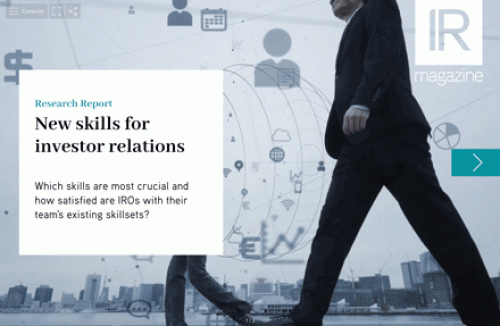IR veteran jumps from one FTSE 100 company to another
Charles King has joined Lloyds Banking Group, the FTSE 100 company, as director of investor relations.
He arrives from Serco Group, another UK blue chip, where he was head of IR from February 2008 to October this year.
In his new role, King will focus on buy-side activity and report to managing director of IR Kate O’Neill.
The post has been created for King and he becomes part of a four-person IR leadership team at Lloyds, along with O’Neill, Michael Oliver (director of sell-side analysts and debt IR) and Douglas Radcliffe (head of IR operations).
The hire marks the latest reorganization of the IR function at Lloyds; O’Neill herself joined Lloyds only in April this year. At the time, she said Lloyds was looking to ramp up its IR activities.
‘Over the last couple of years, the turmoil of the market and the position Lloyds has been in means IR activities were focused around some very key issues, including the rights issue,’ she told IR magazine in April.
‘At this stage, the view of management and the board is to make IR a more strategically focused function, as we have a different landscape ahead of us in the newly integrated group.’
The appointment of King will help with that aim, as he brings with him a wealth of experience in the investor relations field. Prior to Serco Group, he spent three years in IR at Cadbury Schweppes between 2005 and 2008.
He has also been head of IR at Tate & Lyle, the ingredients producer, and held corporate broking roles at Lehman Brothers and UBS.
At Lloyds, King will have one buy-side client in particular to think about: the bank was bailed out by the UK government at the height of the credit crisis and the state retains roughly a 40 percent stake in the group.
UK Financial Investments (UKFI), the body that looks after the government’s stake on its behalf, has not specified when it might sell some or all of its holding.
Such a sale is unlikely to happen any time soon, however, as Lloyds’ shares are currently trading below the level at which the government bought them.










